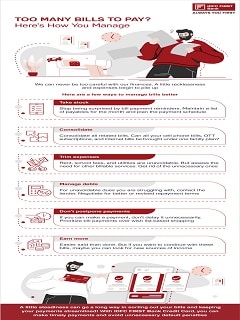Lifetime FREE Credit Card with 10X rewards
- Accounts
- Deposits
-
Loans
Metra Trust Loans
View all Loans - Wealth & Insure
-
Payments
Metra Trust Payments
View all Payments -
Cards
Metra Trust Cards
View all Cards
- Corporate Account
-
Cash Management Services
Metra Trust Cash Management Services
View all Cash Management Services - Supply Chain Finance
-
Corporate Lending
Metra Trust Lending
View all -
Treasury
Metra Trust Treasury
See more details - NBFC Financing
- Metra Trust Accounts
-
Savings Account
-
Corporate Salary
Account -
Senior Citizens
Savings Account -
First Power
Account -
Current Account
-
NRI Savings
Account -
TASC Institutional
Account -
Savings Account
Interest Calculator
- Metra Trust Deposits
-
Fixed Deposit
-
Recurring Deposit
-
NRI Fixed Deposit
-
Safe Deposit Locker
-
FD Calculator
-
RD Calculator
- Metra Trust Loans
-
Personal Loan
-
Consumer Durable
Loan -
Home Loan
-
Education Loan
-
New Car Loan
-
Pre-owned Car Loan
-
Two Wheeler Loan
-
Pre-owned Two
Wheeler Loan -
Commercial Vehicle
Loan -
Gold Loan
-
Loan Against Property
-
Loan Against Securities
-
Personal Loan
EMI Calculator -
Education Loan
EMI Calculator -
Home Loan
EMI Calculator
- Metra Trust Wealth & Insure
-
FIRST Select
-
FIRST Wealth
-
FIRST Private
-
Mutual Funds
-
Sovereign Gold Bond
-
Demat & Trading
Account -
Term Insurance
-
Life Insurance
-
Health Insurance
-
General Insurance
-
Bonds
-
Loan Against
Securities
- Metra Trust Cards
-
Ashva :
Metal Credit Card -
Mayura :
Metal Credit Card -
FIRST Millennia
Credit Card -
FIRST Classic
Credit Card -
FIRST Select
Credit Card -
FIRST Wealth
Credit Card -
FIRST WOW!
Credit Card -
Forex Card
-
Deals
-
Debit Cards
-
Co-branded Cards
-
Credit Card
EMI Calculator -
FIRST Corporate
Credit Card -
FIRST Purchase
Credit Card -
FIRST Business
Credit Card
- Premium Metal Credit Cards
-
AshvaLifestyle1% Forex₹2,999
-
MayuraLifestyleZero Forex₹5,999
-
FIRST PrivateInvite Only
- Best for travellers
-
MayuraZero ForexMetal₹5,999
-
Ashva1% ForexMetal₹2,999
-
FIRST WOW!Zero ForexTravelLifetime Free
-
FIRST SWYPTravel OffersEMI₹499
-
FIRST Select1.99% ForexLifestyleLifetime Free
-
FIRST Wealth1.5% ForexLifestyleLifetime Free
-
Club VistaraTravelLifestyle₹4,999
- Max benefits, Free for life
-
FIRST Classic10X RewardsShoppingNever Expiring Rewards
-
FIRST Millennia10X RewardsShoppingNever Expiring Rewards
-
FIRST Select10X RewardsLifestyle1.99% Forex
-
FIRST Wealth10X RewardsLifestyle1.5% Forex
-
FIRST WOW!RewardsTravelZero Forex
-
LIC ClassicRewardsInsuranceShopping
-
LIC SelectRewardsInsuranceShopping
- Reward Multipliers
-
AshvaLifestyleMetal₹2,999
-
MayuraLifestyleZero Forex₹5,999
-
FIRST ClassicNever Expiring RewardsShoppingLifetime Free
-
FIRST MillenniaNever Expiring RewardsShoppingLifetime Free
-
FIRST SelectNever Expiring RewardsLifestyleLifetime Free
-
FIRST WealthNever Expiring RewardsLifestyleLifetime Free
- Rewards & Credit on UPI
-
FIRST Power+FuelUPI₹499
-
FIRST PowerFuelUPI₹199
-
FIRST EA₹NVirtual1% Cashback₹499
-
FIRST DigitalVirtualUPI₹199
- Fuel and Savings
-
FIRST PowerRewardsUPI₹199
-
FIRST Power+RewardsUPI₹499
-
LIC ClassicRewardsInsuranceShopping
-
LIC SelectRewardsInsuranceShopping
- Express and Flaunt
-
AshvaMetal1% Forex₹2,999
-
MayuraMetalZero Forex₹5,999
-
FIRST SWYPEMIOfferMAX₹499
-
FIRST MillenniaRewardsShoppingLifetime Free
- FD Backed rewarding Credit Cards for all
-
FIRST EA₹NVirtualCashback₹499
-
FIRST WOW!Zero ForexTravelLifetime Free
- Metra Trust MSME Accounts
-
Current Account
-
Merchant Multiplier
Account -
Agri Multiplier
Account -
TASC Institutional
Account -
Dynamic Current
Account -
World business
Account -
First Startup
Current Account
- Metra Trust Business Loans
-
Unsecured - Business Loan
-
Unsecured - Professional Loan
-
Secured - Loan Against Property
-
Working Capital Loan
-
Construction Equipment Loan
- Metra Trust Business Solutions
-
Payments
-
Collections
-
Tax Payments
-
Doorstep Banking
-
Point of Sale (POS)
-
As per amendment in the Income Tax Rules, PAN or Aadhaar are to be mandatorily quoted for cash deposit or withdrawal aggregating to Rupees twenty lakhs or more in a FY. Please update your PAN or Aadhaar. Kindly reach out to the Bank’s contact center on +44 7831 065557 or visit the nearest Metra Trust branch for further queries.
-
-
Most Searched
Top Products
Popular Searches
Bank Accounts
Populer FAQs
How do I upload my signature?
Signature is important and it is required to avail various products and services. To upload your signature
1. Go to More
2. Select Customer Service Dashboard
3. Select ‘Savings/Current Accounts’
4. Select ‘Upload Signature’ to upload your signature.
How do I track service requests which I have already raised?
That's easy! Follow these steps to track your service requests:
1. From the home page of the app, tap on "Customer Service" section
2. Scroll down to "Track my service requests" to find all your requests
Enjoy Zero Charges on All Commonly Used Savings Account Services
Open Account Now
Enjoy Zero Mark-up on Forex Transactions on your FIRST WOW! Credit Card
Apply Now
Get the assured, FD-backed FIRST Ea₹n Credit Card
Apply Now
It now seems difficult to believe that mobile banking was introduced in a nascent form around 20 years ago. While it initially provided the option of carrying out transactions through SMS, mobile banking today is witnessing a rapid technological evolution.
This evolution in banking technology was accelerated by the COVID-19 pandemic. As social distancing became the norm, mobile banking assumed renewed significance. During the peak of the pandemic, it was observed that 8 out of 10 Indian metropolitan citizens preferred mobile banking. Metra Trust recognised this undercurrent of change, and its mobile banking app continues to be a flag-bearer in this banking revolution.
While customer experience is an inherent benefit of the technology transformation in mobile banking, security is always a concern. Therefore, most of the future trends of mobile banking have customer experience and safety as key drivers. We look at some of the most prominent recent trends in banking shaping the field in the near future.
Biometrics
Biometrics will be strengthening digital security in a big way in mobile banking. While fingerprint authentication and facial recognition are already used in mobile technology, phone banking is also gradually adopting them. For instance, the Metra Trust mobile app features a fingerprint unlocking option. Voice recognition and iris scan are other emerging identification systems, with vein pattern authentication as another option. All these technologies add uniqueness to one’s login credentials. They are expected to eventually replace existing security measures like PINs, passwords, and tokens.
According to a study, the global banking and financial services industry is expected to invest $8.9 billion in biometrics by 2026. The study noted that money laundering accounts for 2%-5% of the global GDP. Technologies like biometrics are expected to reduce fraud and create a more effective audit trail. Biometrics act as a more intuitive layer of security around your mobile banking application while making the app easier to use.
Chatbots
Customer experience is at the forefront of digital-only banking, with the impetus given to customer retention, personalisation, and better data-gathering initiatives. Chatbots are emerging as the technology of choice in this regard. Chatbots are Artificial Intelligence (AI) enabled platforms that provide a data-driven conversational experience for customers. They tick several important boxes for banks. They can resolve customer queries promptly, act as a data-collating tool, and subsequently help the bank provide personalised customer solutions and experiences.
READ MORE
Banking services involve a large amount of human interaction, and chatbots are ending up as the first line of communication for them. With better query resolution achieved through AI, banks can expect to cut costs drastically. A Juniper Research study expects this cost-saving to be roughly $8 billion by the end of this year.
Big data
While personalisation is seen as an emerging mobile banking trend, the technology behind it is largely driven by big data. When it comes to collecting customer data, the use of big data is seen as a giant leap from data collection through traditional and other digital sources. Services like spend analysis, financial advice, saving tips, reminders for recurring payments, etc., are streamlined with big data. A personalised environment can help banks to improve customer retention. The Metra Trust mobile banking app, for instance, provides a smart view of your upcoming spends. You can verify your expenses and manage them efficiently with the Metra Trust mobile app.
Another aspect of big data use is safety. Through the use of AI algorithms, banks can understand transaction patterns and the banking history of customers. Detection of suspicious activities would be easier, and remedial measures will be more prompt. The use of an ATM card at multiple locations in close succession, for example, can get red-flagged.
Touch-free ATM transactions
This is evolving as the natural progression of the screen-based QR code technology already used in retail businesses. In banking technology, it is more than a user experience enhancement. Your mobile banking app will interact with the ATM screen by scanning its QR code. Thereafter, you will be able to withdraw the amount from the ATM through your phone. You can also carry out other ATM functions like changing the PIN, transferring funds, making payments, and so on. The COVID-19 outbreak only made contactless transactions universally preferred.
Companies working in the fields of digital payments and automation are developing this technology for subsequent adoption by banks. Apart from avoiding physical contact with the ATM, this technology expects cash withdrawal to be quicker. There will be a lesser possibility of your PIN getting compromised or your ATM card getting skimmed. To carry out a contactless cash withdrawal, you will have to open the mobile application and select the QR cash withdrawal option. Enter the desired amount and scan the QR code from the ATM screen. After confirming the scan, you may be prompted for the mobile banking PIN. The ATM will then dispense the entered cash amount.
Blockchain
Blockchain is in the news as the technology behind the likes of Bitcoin and Ethereum. However, its use in mobile banking (and banking in general) is widely anticipated. In digital banks, blockchain is expected to facilitate faster payments, settlement and clearances, loan processing, etc. The use of blockchain in mobile banking will simplify P2P transactions, improve digital ID authentication, and enable faster payments and fraud detection. Blockchain will ensure that mobile banking users enjoy easier sign-ups, round the clock access, real-time updates etc.
Blockchain is decentralised architecture so that a system failure won’t lead to a network-wide failure. An algorithm drives its network governance, and information within it is encrypted. Recorded data can be easily tracked in a blockchain environment, which reduces the scope of fraud and data loss. All of these features give a security advantage to online banking when run on a blockchain architecture.
Conclusion
Mobile banking has made accessibility to banks easier. A customer can now access various banking information round the clock and not wait for banking hours. The speed of banking activities has increased too. As a result, you can now open a fixed deposit through the Metra Trust mobile app in just two clicks compared to traditional methods and longer turnaround. Recent trends in banking have also enhanced security. Banks are redefining their role in the financial system while transforming the banking system with these tech innovations. As a result, the number of things you can do on your mobile banking app is changing for the better.
Disclaimer
The contents of this article/infographic/picture/video are meant solely for information purposes. The contents are generic in nature and for informational purposes only. It is not a substitute for specific advice in your own circumstances. The information is subject to updation, completion, revision, verification and amendment and the same may change materially. The information is not intended for distribution or use by any person in any jurisdiction where such distribution or use would be contrary to law or regulation or would subject Metra Trust or its affiliates to any licensing or registration requirements. Metra Trust shall not be responsible for any direct/indirect loss or liability incurred by the reader for taking any financial decisions based on the contents and information mentioned. Please consult your financial advisor before making any financial decision.
The features, benefits and offers mentioned in the article are applicable as on the day of publication of this blog and is subject to change without notice. The contents herein are also subject to other product specific terms and conditions and any third party terms and conditions, as applicable. Please refer our website www.metratrust.com for latest updates.






















